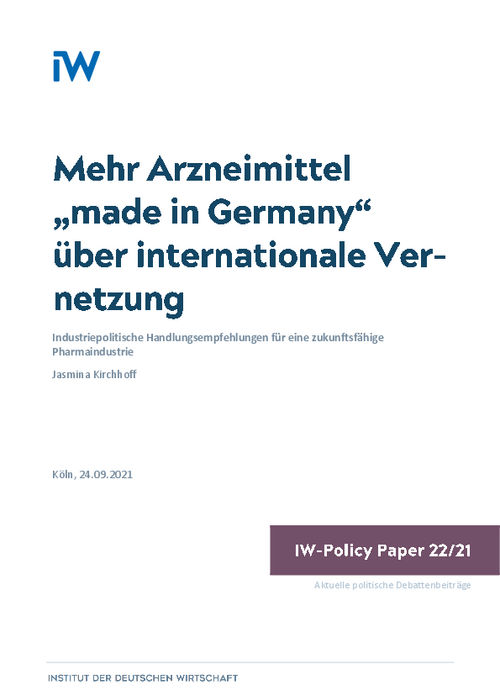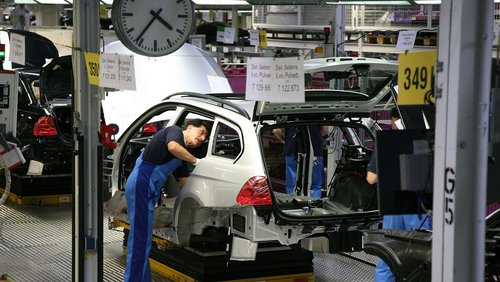The Corona pandemic has put the German pharmaceutical industry more than ever in the focus of political and social discussions. At an unprecedented speed, pharmaceutical companies have developed and brought to market four vaccines approved in Europe – German companies have played a major role in this success.

More medicines "made in Germany" via international networking: Industry policy recommendations for a sustainable pharmaceutical industry

The Corona pandemic has put the German pharmaceutical industry more than ever in the focus of political and social discussions. At an unprecedented speed, pharmaceutical companies have developed and brought to market four vaccines approved in Europe – German companies have played a major role in this success.
In addition, two drugs have already been approved in Europe for the treatment of covid-19 patients, and research is underway on others. These rapid successes were only possible because pharmaceutical companies quickly networked with each other and with players along the entire global pharmaceutical value chain, and new technologies such as the mRNA-platform could be used in the process.
Nevertheless, calls for pharmaceutical production to be relocated back to Germany or the European Union (EU) are becoming louder and louder, with the aim of reducing international dependencies for individual active ingredients and medicines. However, the demand for national or European autarky, even if it is only for certain pharmaceutical products classified as relevant to supply, is hardly feasible due to global interdependence and is also not helpful in terms of shaping a sustainable pharmaceutical location. Above all, however, the attempt to bring back pharmaceutical production that has already migrated is unrealistic and expensive. Instead, the question is how Germany can be strengthened as a pharmaceutical research location and as a production location for complex, innovative medicines, both for production already underway at the location as well as for future production. This can only be achieved if integration into global research and production networks is targeted and access to these networks is simplified and promoted. Ensuring and safeguarding free trade is therefore a basic prerequisite for a strong German pharmaceutical industry. In addition, a modern industrial policy can strengthen Germany's position as a pharmaceutical location in global competition, for example by reducing existing market entry barriers and competition restrictions and improving investment and financing conditions.

More medicines "made in Germany" via international networking: Industry policy recommendations for a sustainable pharmaceutical industry

More on the topic

Further training needs of the automotive industry in transformation
Due to the ecological and digital transformation, significant parts of the German economy, particularly the industrial sector, are currently undergoing a transformation. This development also extends to the automotive sector, which occupies a vital position in ...
IW
Valuing Companies' Data
Data is becoming increasingly important both for companies and for national economies. Since the full potential of business data can only be realised when several users exploit it simultaneously, data sharing is also becoming more common.
IW